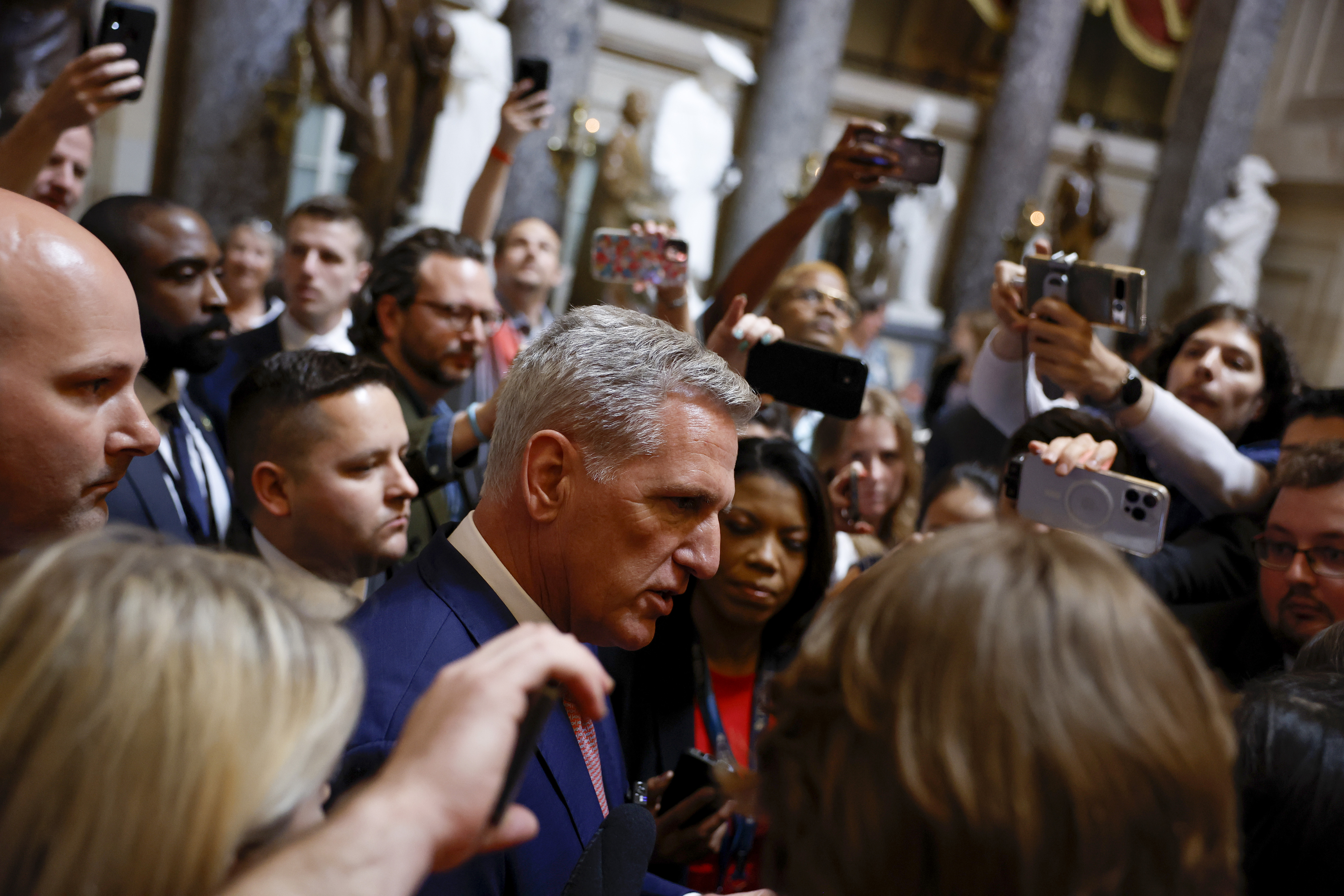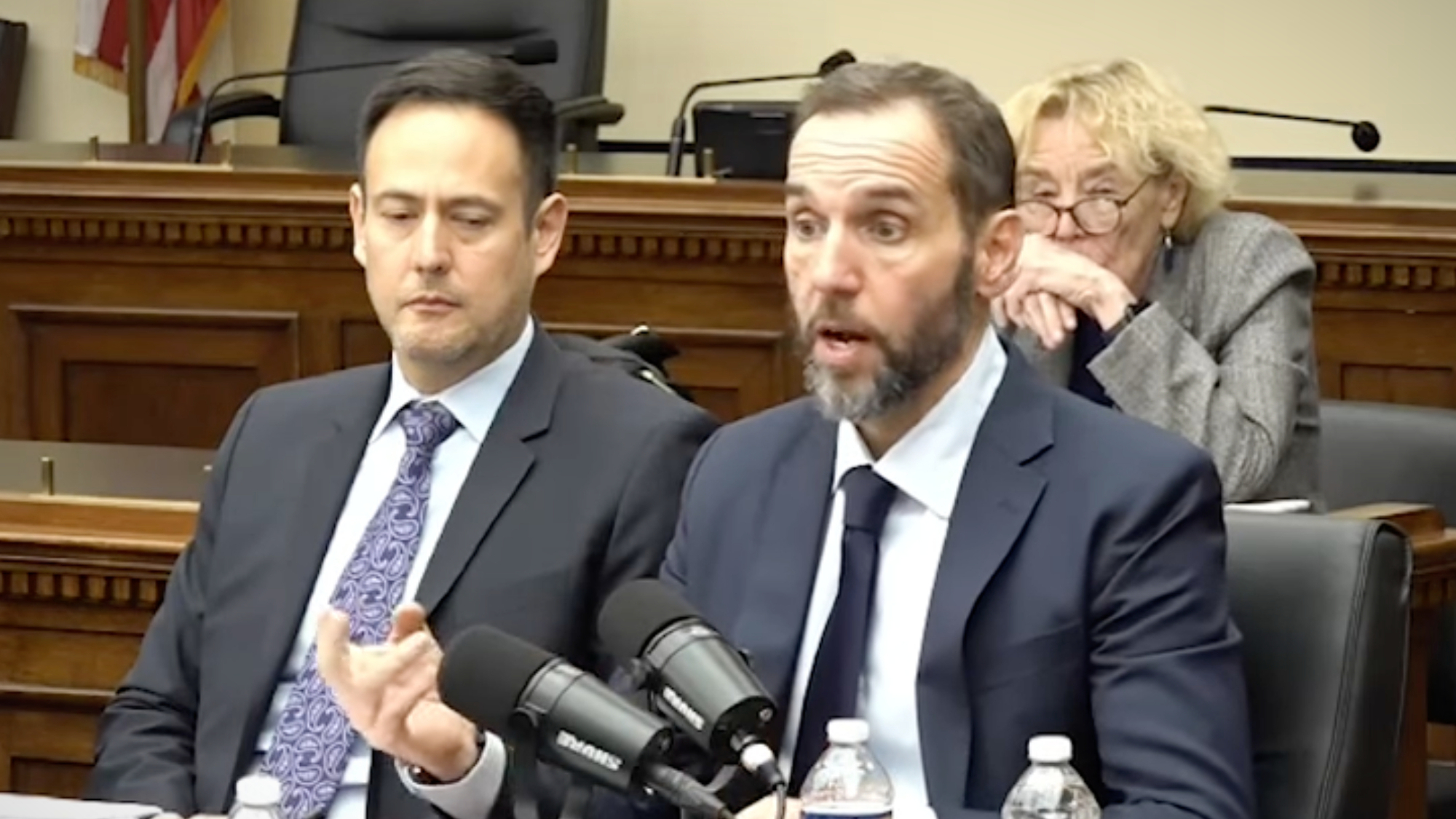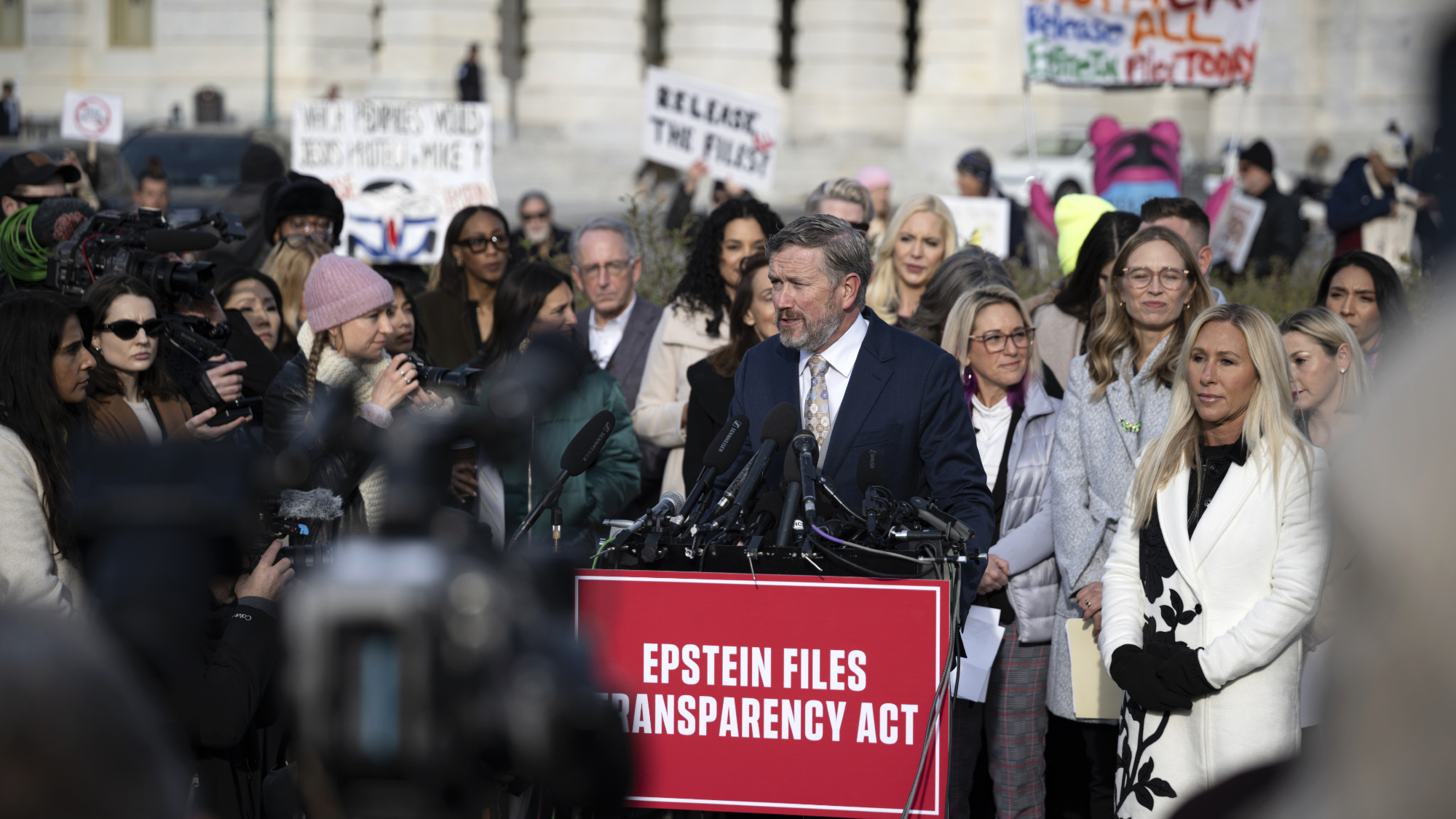Kevin McCarthy's last-minute debt ceiling drama
Conservatives in the House don't just want to punish the speaker for his debt ceiling negotiations. They want to humiliate him.


A free daily email with the biggest news stories of the day – and the best features from TheWeek.com
You are now subscribed
Your newsletter sign-up was successful
When Rep. Kevin McCarthy (R-Calif.) was elected speaker of the House after a grueling series of votes to solidify his fractious congressional majority, he did so thanks in part to a negotiated agreement that empowered his party's most extreme conservatives to oust him from his leadership perch at a moment's notice through a process called the "motion to vacate." Just months later, McCarthy is facing a growing chorus of angry voices from that same far-right faction — and beyond — that not only threatenes to scuttle a nascent debt ceiling deal he and White House officials agreed upon, but could see his leadership challenged on the same grounds that allowed him to grasp the gavel.
What's the drama?
Members of the ultra-conservative House Freedom Caucus argue that a deal to both raise the current debt limit and cut government spending by at least an estimated $1 trillion over the coming decade doesn't go far enough compared to the narrowly passed — but largely symbolic – bill passed in the House in late April, which featured much more aggressive spending cuts. After the tentative agreement between McCarthy and the Biden administration was announced, a number of Republicans trashed the deal as "an insult to the American people" that would "kick the can down the road at the expense of our kids and grandkids." Even South Carolina Rep. Nancy Mace, a far-right conservative who has positioned herself as a party moderate of late, blasted the proposed legislation as the product of a "broken" Washington in Republicans were "outsmarted by a president who can't find his pants."
Those intra-party tensions reached a fever pitch as members of the Freedom Caucus began openly insinuating that McCarthy's speakership could be a casualty of any effort to push through a bill so deeply unpopular with his right flank.
The Week
Escape your echo chamber. Get the facts behind the news, plus analysis from multiple perspectives.

Sign up for The Week's Free Newsletters
From our morning news briefing to a weekly Good News Newsletter, get the best of The Week delivered directly to your inbox.
From our morning news briefing to a weekly Good News Newsletter, get the best of The Week delivered directly to your inbox.
With a reference to the "power sharing arrangement" between McCarthy and the Freedom Caucus that convinced the latter to support the former for the speakership, Rep. Chip Roy of Texas called the White House/McCarthy deal a "betrayal" that would force a number of his peers to "regroup and figure out the whole leadership arrangement again."
Fellow Freedom Caucus member Rep. Dan Bishop (R-N.C.) was even more assertive in his threats to McCarthy, predicting "war" while confirming to Politico that he would "absolutely" consider using a motion to vacate on the speaker as a result, calling it "inescapable."
What's next?
McCarthy insists neither the bill nor his leadership are at serious risk. But the schism between the members of his party willing to negotiate with Democrats and those who are threatening to reject all but the hardest of lines presents a major problem for the speaker. After all, his majority is already tenuous. With so many Republicans publicly committed to voting against the bill when it comes to the House floor, McCarthy will almost certainly have to rely on a significant number of Democrats to help get the legislation over the finish line — something a number of Democrats have indicated they will do. But this would render him even weaker within his own party. "I don't think that'd be a good look, let's just put it that way," Rep. Andy Biggs (R-Ariz.) told Axios.
Bishop encouraged other Republicans to step forward and block the bill and to ensure "there is any path to salvaging what we began as a unified conference." That suggested the defectors were lacking enough "nay" votes to fully stop the bill from moving to the Senate, The Washington Post noted, but also suggested Bishop and his colleagues were not merely willing to see McCarthy in an uncomfortable legislative bind, but eager. Even if the bill passes, McCarthy's stature will be diminished, placing him at further risk for future rebellions and efforts to oust him.
A free daily email with the biggest news stories of the day – and the best features from TheWeek.com
Rafi Schwartz has worked as a politics writer at The Week since 2022, where he covers elections, Congress and the White House. He was previously a contributing writer with Mic focusing largely on politics, a senior writer with Splinter News, a staff writer for Fusion's news lab, and the managing editor of Heeb Magazine, a Jewish life and culture publication. Rafi's work has appeared in Rolling Stone, GOOD and The Forward, among others.
-
 The EU’s war on fast fashion
The EU’s war on fast fashionIn the Spotlight Bloc launches investigation into Shein over sale of weapons and ‘childlike’ sex dolls, alongside efforts to tax e-commerce giants and combat textile waste
-
 How to Get to Heaven from Belfast: a ‘highly entertaining ride’
How to Get to Heaven from Belfast: a ‘highly entertaining ride’The Week Recommends Mystery-comedy from the creator of Derry Girls should be ‘your new binge-watch’
-
 The 8 best TV shows of the 1960s
The 8 best TV shows of the 1960sThe standout shows of this decade take viewers from outer space to the Wild West
-
 House ends brief shutdown, tees up ICE showdown
House ends brief shutdown, tees up ICE showdownSpeed Read Numerous Democrats joined most Republicans in voting yes
-
 Democrats win House race, flip Texas Senate seat
Democrats win House race, flip Texas Senate seatSpeed Read Christian Menefee won the special election for an open House seat in the Houston area
-
 The ‘mad king’: has Trump finally lost it?
The ‘mad king’: has Trump finally lost it?Talking Point Rambling speeches, wind turbine obsession, and an ‘unhinged’ letter to Norway’s prime minister have caused concern whether the rest of his term is ‘sustainable’
-
 House approves ACA credits in rebuke to GOP leaders
House approves ACA credits in rebuke to GOP leadersSpeed Read Seventeen GOP lawmakers joined all Democrats in the vote
-
 Jack Smith: Trump ‘caused’ Jan. 6 riot
Jack Smith: Trump ‘caused’ Jan. 6 riotSpeed Read
-
 Can Mike Johnson keep his job?
Can Mike Johnson keep his job?Today's Big Question GOP women come after the House leader
-
 Memo signals Trump review of 233k refugees
Memo signals Trump review of 233k refugeesSpeed Read The memo also ordered all green card applications for the refugees to be halted
-
 Congress passes bill to force release of Epstein files
Congress passes bill to force release of Epstein filesSpeed Read The Justice Department will release all files from its Jeffrey Epstein sex-trafficking investigation
